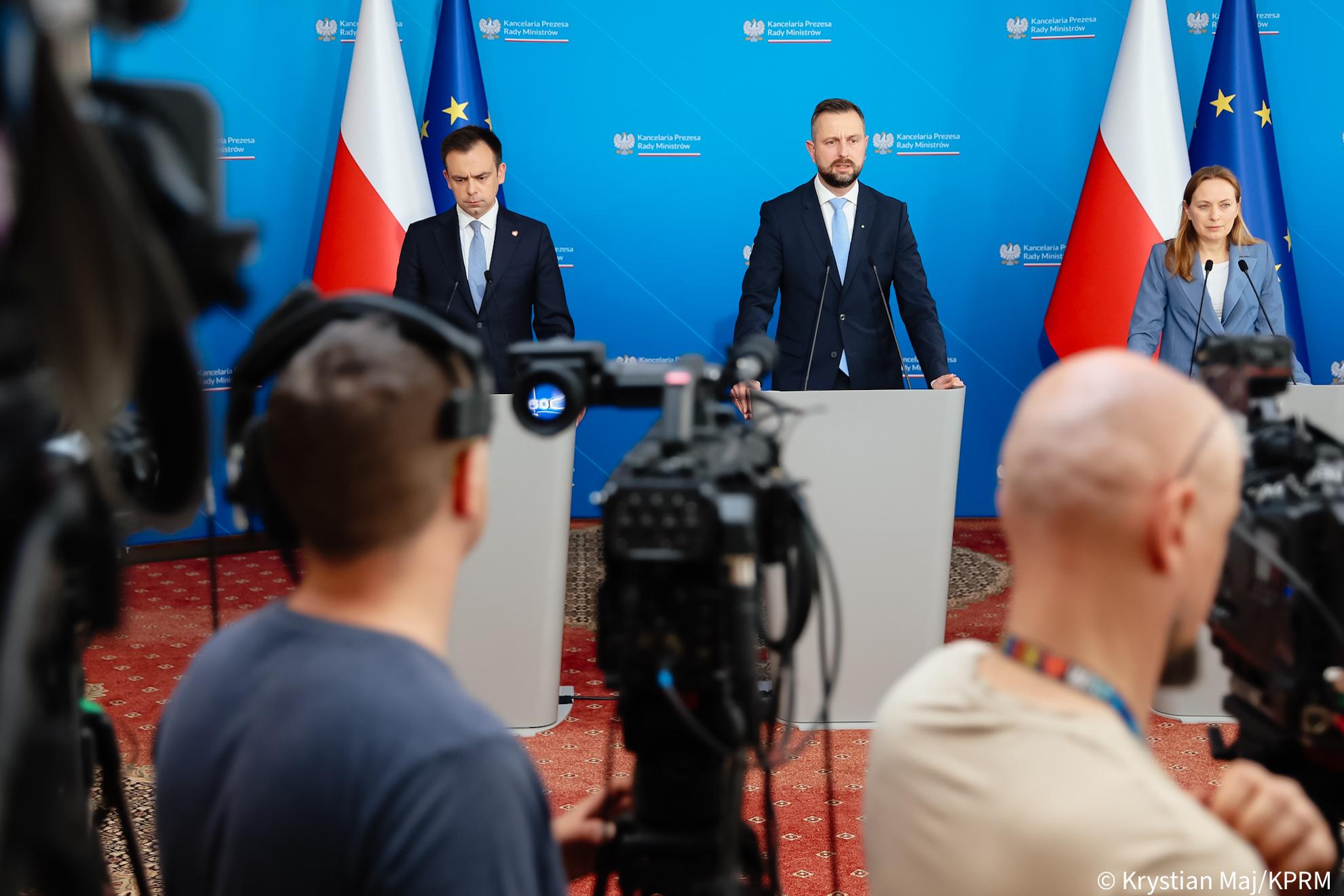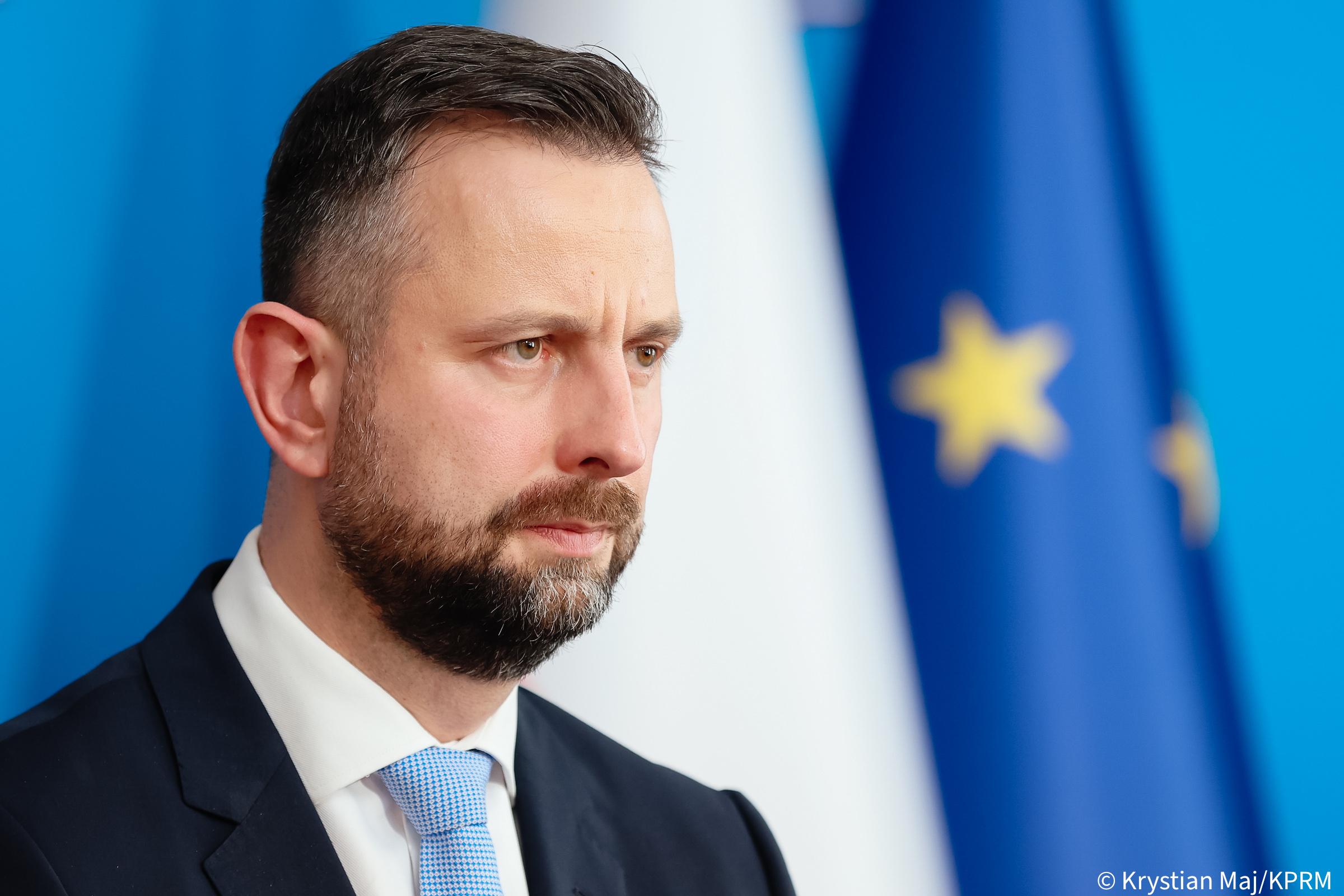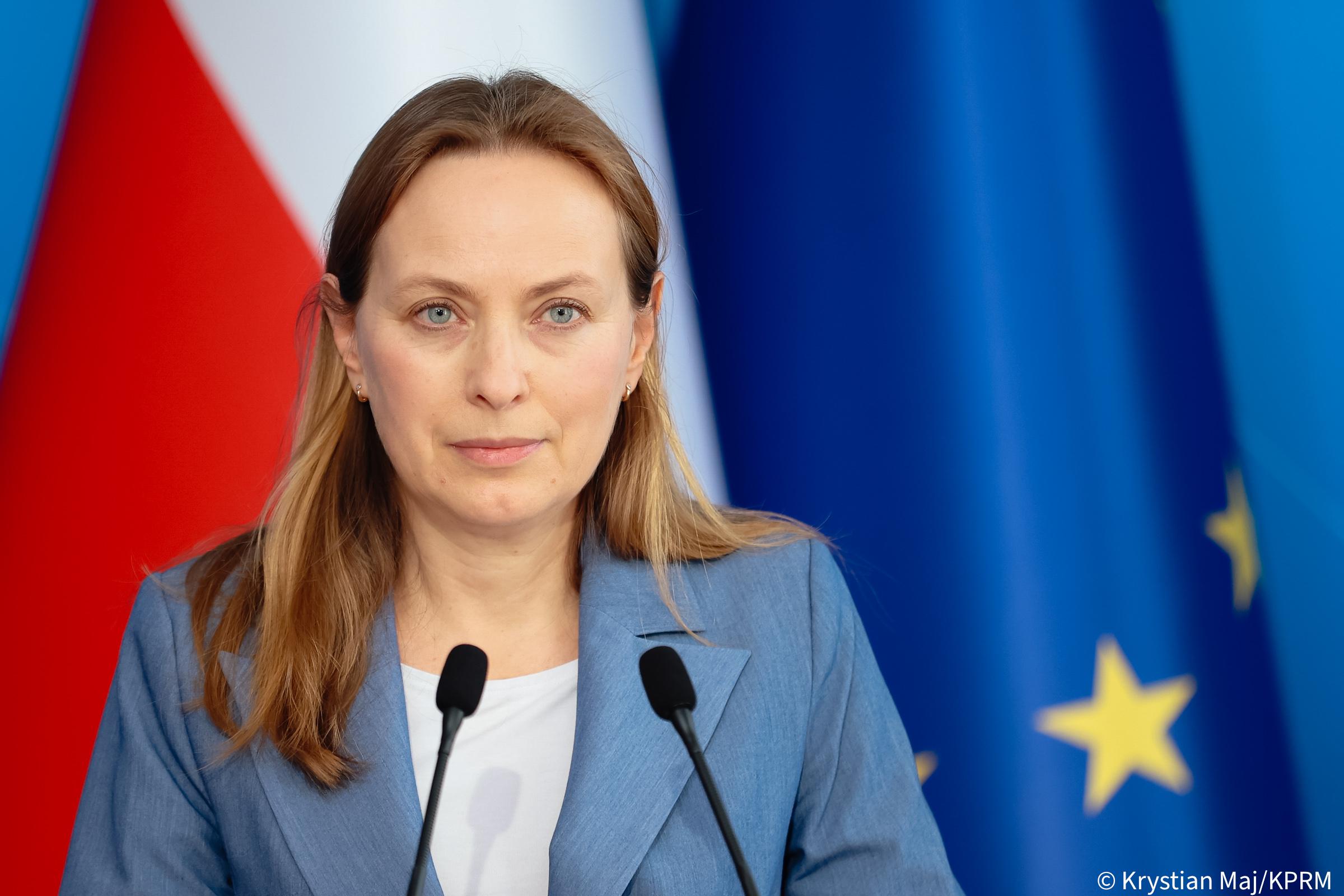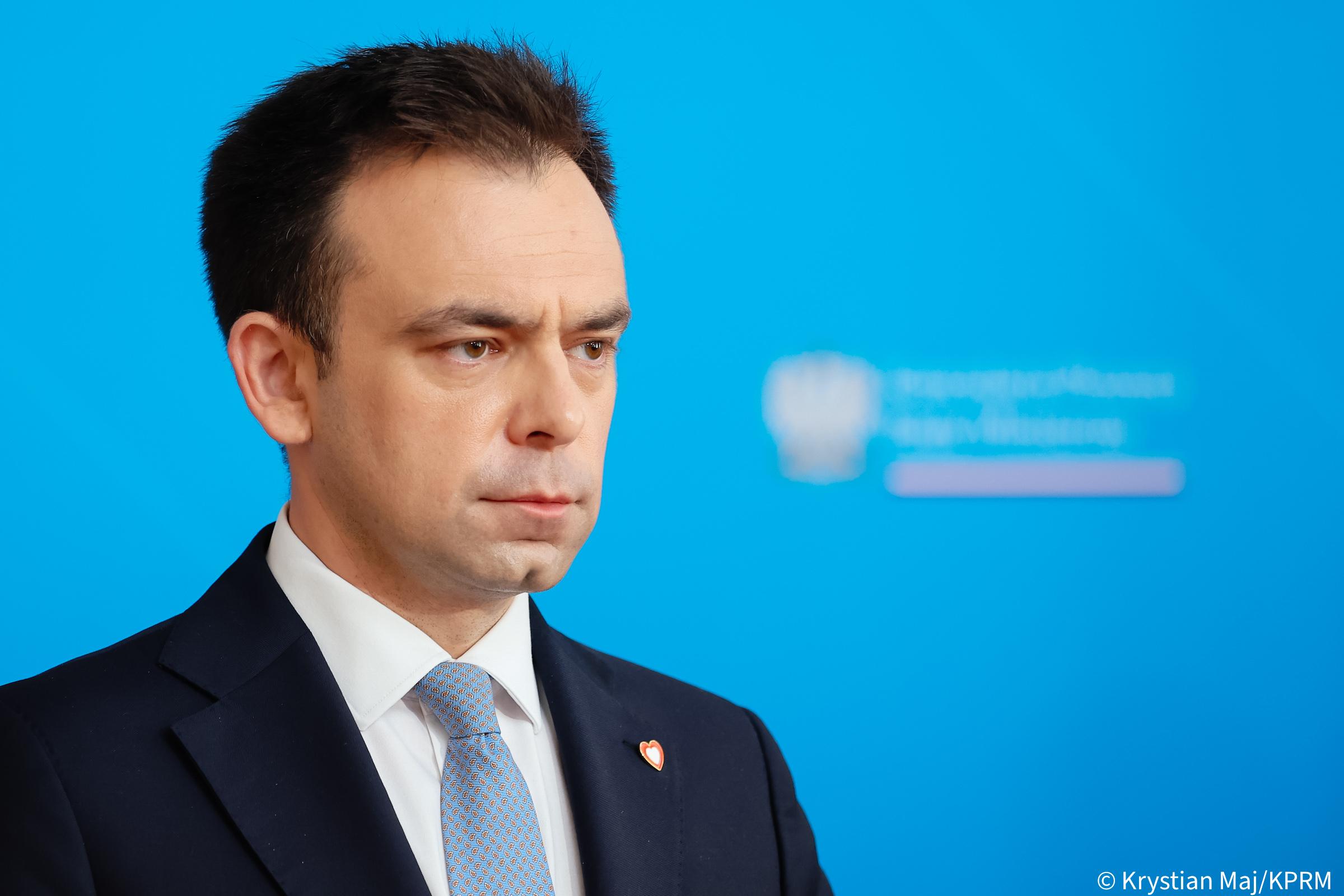Investment, strong economy and sanation of public finances
30.04.2024
The revised National Recovery Plan, the Long-term Financial Framework Plan for 2024-2027, as well as assistance to Ukrainian citizens and the National e-Invoicing System were approved by the Council of Ministers. Due to the Prime Minister’s illness, the meeting was chaired by Deputy Prime Minister Władysław Kosiniak-Kamysz.

The government makes up for lost years
The funds from the National Recovery Plan were blocked for years due to the actions of the previous government. We are doing everything to ensure that Poland makes the best possible use of EU funding. As of today, Poland has returned to the negotiating table, and this brings tangible benefits for the country.
“Our predecessors talked and shouted a lot, rattled their sabres and achieved nothing - they did not manage to launch the National Recovery Plan, they failed to obtain funding, they failed to ensure Poland’s security and failed to give Poles the chance for better security and growth. We are fixing their mistakes. . . . The work of this Council of Ministers is essentially all about laws and resolutions that restore proper order, enabling all Polish citizens to be safe and to function in Poland,” Władysław Kosiniak-Kamysz explained during a press conference following the cabinet meeting.
The cabinet change and the subsequent restoration of the rule of law resulted in the National Recovery Plan funds being released and arriving in Poland.
“Poland has received a substantial sum, the highest-ever single transfer, which amounted to 27 billion PLN. In total, Poland is slated to receive 600 billion PLN. It was made possible by our coalition government and our decisions," the Deputy Prime Minister added.
Further request for transfers are to be submitted after the summer months.
No approval for tax on ICE-powered cars
Poles are not going to be forced to pay tax on cars powered by internal combustion engines. Instead of introducing bans and new taxes, we aim to make life as easy as possible for Polish citizens. That is why instead of punishment and penalties, the government aims to offer support, including subsidies for purchasing an electric vehicle.
“There will be no tax on cars powered by internal combustion engines. . . . Instead, we will earmark funding for subsidies aimed at people willing to purchase an electric vehicle - 30,000 PLN for a mid-range electric car. We are not going to subsidise top-of-the-line vehicles. We also envisage additional support to those, who are somewhat worse-off. Car owners who scrap their existing vehicle will get additional subsidies,” Minister for Funds and Regional Policy Katarzyna Pełczyńska Nałęcz explained.
These measures are a part of the revised National Recovery Plan. The Ministry of Climate and Environment is working on a subsidy programme, which is due to start later this year.
The EU funds will be used to provide long-term care, vouchers for seniors, the National Oncology Network, the construction of a technical terminal in Darłowo and laptops for teachers in grades 1-3.
“We are moving €300 million from the loans to long-term care - local hospitals are unable to borrow more money, they need grants and subsidies. We are also going to earmark 1,2 billion PLN for long-term care, as well as district hospitals, which are extremely important,” Minister Katarzyna Pełczyńska-Nałęcz has announced.
A total of 2.5 billion PLN will go towards supporting small and medium-sized enterprises and the agricultural sector in Poland, so that farmers can feel even more competitive and secure on the Polish and European markets.
We are also going to earmark €120 million for financing renovation of multi-family buildings.
“These are just some of the changes. We are speeding up a great deal of projects and reforms in order to finish them in time. We will make up for these two lost years by working twice as hard. . . . This is going to take twice as much effort, but we hope that the effect is also going to be twice as good. If we are effective and efficient, the second and third instalments will be transferred to Poland by the end of this year,” said Katarzyna Pełczyńska-Nałęcz
Amendments to the Act on Assistance to Ukrainian Citizens
Poland has supported Ukraine since the beginning of Russian aggression, providing both humanitarian and military aid to our neighbours. Poles opened their homes and offered them to those in need.
The government will continue supporting Ukrainian citizens in terms of family policy and access to education; however, some changes to the existing laws are required.
“The Family 800+ benefit and other subsidies will be available to families with children attending school, which will be used as a confirmation that they remain in Poland. We have heard many reports of people applying for benefits and immediately leaving for Ukraine. We are taking care of these loopholes and making the system more transparent,” the Deputy Prime Minister informed.
Sanation of public finances
One of the drafts adopted by the government is the resolution on the Long-term Financial Framework Plan for 2024-2027, which constitutes the basis for drafting the 2025 budget bill.
“We expect the Polish economy to grow at a rate of 3.1% this year. Next year, we expect to see an accelerated growth at a rate of 3.7%. This should make the Polish economy one of the fastest-growing economies in the European Union. Let me remind you that in 2023, the economy barely grew. The growth rate amounted to mere 0.2%,” Andrzej Domański, Minister of Finance, claimed.
The Long-term Financial Framework Plan includes two new provisions, which are crucial from the point of view of transparency and sustainability of public finances. These include the establishment of the Fiscal Council.
“The Fiscal Council is a body tasked with overseeing and monitoring compliance with the budget act, as well as analysing macroeconomic forecasts and assumptions. Poland is the last European Union Member State without a Fiscal Council. This change will significantly increase the transparency of the budget process,” Andrzej Domański explained.
The second draft approved by the Council of Ministers is an amendment to the Act on the National e-Invoicing System.
“Our predecessors managed to set a time bomb under the Polish economy. The National e-Invoicing System was definitely not ready for a launch on 1 July 2024,” Minister Domański claimed.
Its implementation has therefore been postponed until 1 February 2026.
An audit at the Ministry of Finance has shown that the design and development processes were fraught with errors and issues. Thus, it is essential to start from scratch and create a new architecture for the National e-Invoicing System.




